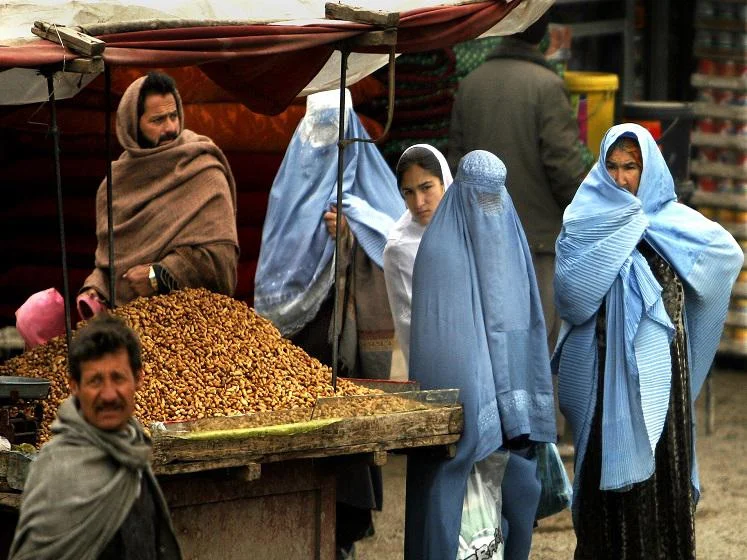The Fight for Legitimacy in Afghanistan

President Trump’s announcement that the U.S. would commit additional troops to Afghanistan has put the sixteen year-long conflict back in the headlines. Since the ousting of the ruling Taliban government in 2001, the conflict in Afghanistan has been a long fight to expel extremist Taliban forces. However, over the course of the last few years the Taliban have been regaining power and influence in a number of provinces in the country. With less than 60 per cent of the country’s districts under Afghan government control, an outright victory for the Afghans and their allies has been put into doubt. With this resurgence of power, a new study from LSE PhD researcher Florian Weigand explores the views of ordinary Afghans, as opposed to foreign observers, to find out where the Taliban derives its legitimacy.
Since 2001, the central Afghan government and its allies have fought to legitimise authority against the Taliban’s self-styled ‘jihadists.’ Central to this has been the campaign for the hearts and minds of the local population. Despite this, 16.7 per cent of Afghanistan’s population in accessible areas have sympathy for armed opposition groups according to Asia Foundation polling data.
By conducting on-the-ground interviews in the eastern province of Nangarhar, Weigand set out to investigate the reasons why people in Afghanistan view the Taliban as legitimate or illegitimate. He interviewed a broad spectrum of Afghans, both rural and city-dwellers, to explore their perceptions and whether their views fit the prevailing narrative about the Taliban deriving legitimacy as religiously motivated jihadists.
Overall, Weigand found that perceptions of the Taliban were quite negative. People, particularly in cities, see the Taliban as an illegitimate force and a threat to their security. Attacks that disrupt daily life and criminal activity such as kidnapping and robberies serve to damage the legitimacy of the Taliban. They are often seen as a tool of foreign intervention, particularly by Pakistan, aimed at disrupting the Afghan state.
Despite this, people in some rural areas more openly support the Taliban. However, their reason for doing so may come as a surprise. Overall, people are more interested in having their day-to-day needs met, rather than grand ideologies. The narrative of the conflict – that the Afghan central government and allies are fighting religious extremism – does not seem to be the primary focus for ordinary Afghans. In these regions the Taliban’s legitimacy does not rest on their ideology but on their ability to be the ‘lesser evil.’ People are pragmatic about whom they support and tend to see the option that fulfils needs in the fairest, fastest way as the most legitimate.
"Legitimacy is often not underpinned by ‘big’ ideological concerns, but by the perception of being treated better by the Taliban than by the government. For instance, by successfully providing conflict resolution at the community level in a way that is perceived to be accessible, fast and fair," says Weigand.
For ordinary Afghans, small, daily interactions serve as the face of local authority. With services such as ‘mobile courts’ the Taliban are able to consolidate legitimacy and derive support in a way that the Afghan government sometimes fails to do.
"Put simply, people’s immediate concern is having any rule of law, regardless of its ideological sources. But values still matter. People want to be treated with respect and expect interactions with authorities to be fair," says Weigand.
The Taliban sometimes live up to these expectations better than the central Afghan state. Perceived, or experienced, corruption continues to plague the central government. The Taliban benefit from the government being viewed as very corrupt and extractive; they consolidate legitimacy as the least-worst option in these cases.
In fact, it appears the Taliban in cities are not so much actively trying to construct legitimacy for themselves but trying to undermine the state’s legitimacy by exposing weaknesses in delivering security provisions.
Although the study only covers one province in Afghanistan and cannot be seen as representative of the country as a whole, it provides a compelling snapshot into the views of Afghans in a variety of settings. Indeed, this research may have policy implications for other conflict zones.
The views presented in the study illustrate that in order to win the fight against the Taliban, a military victory on the battlefield is not enough. The Afghan government must construct legitimacy more adeptly than the Taliban, ensuring people feel they are the more expedient option.
"Instead of focusing on grand narratives and big ideologies, policymakers should take special care to mind the day-to-day interactions with locals. Authorities should ensure that people are treated with respect and fairness, that will in turn reinforce perceptions of legitimacy," says Weigand.